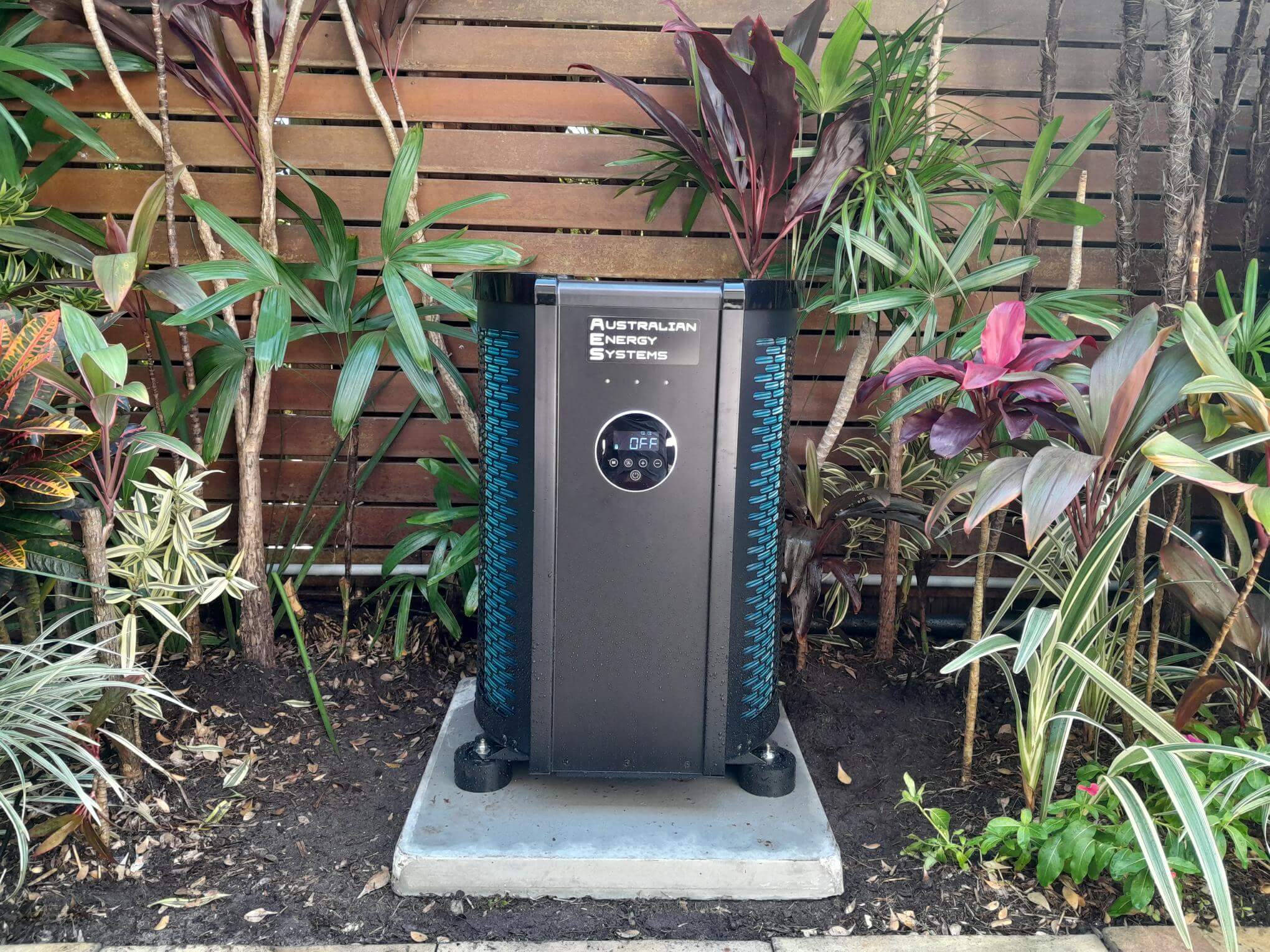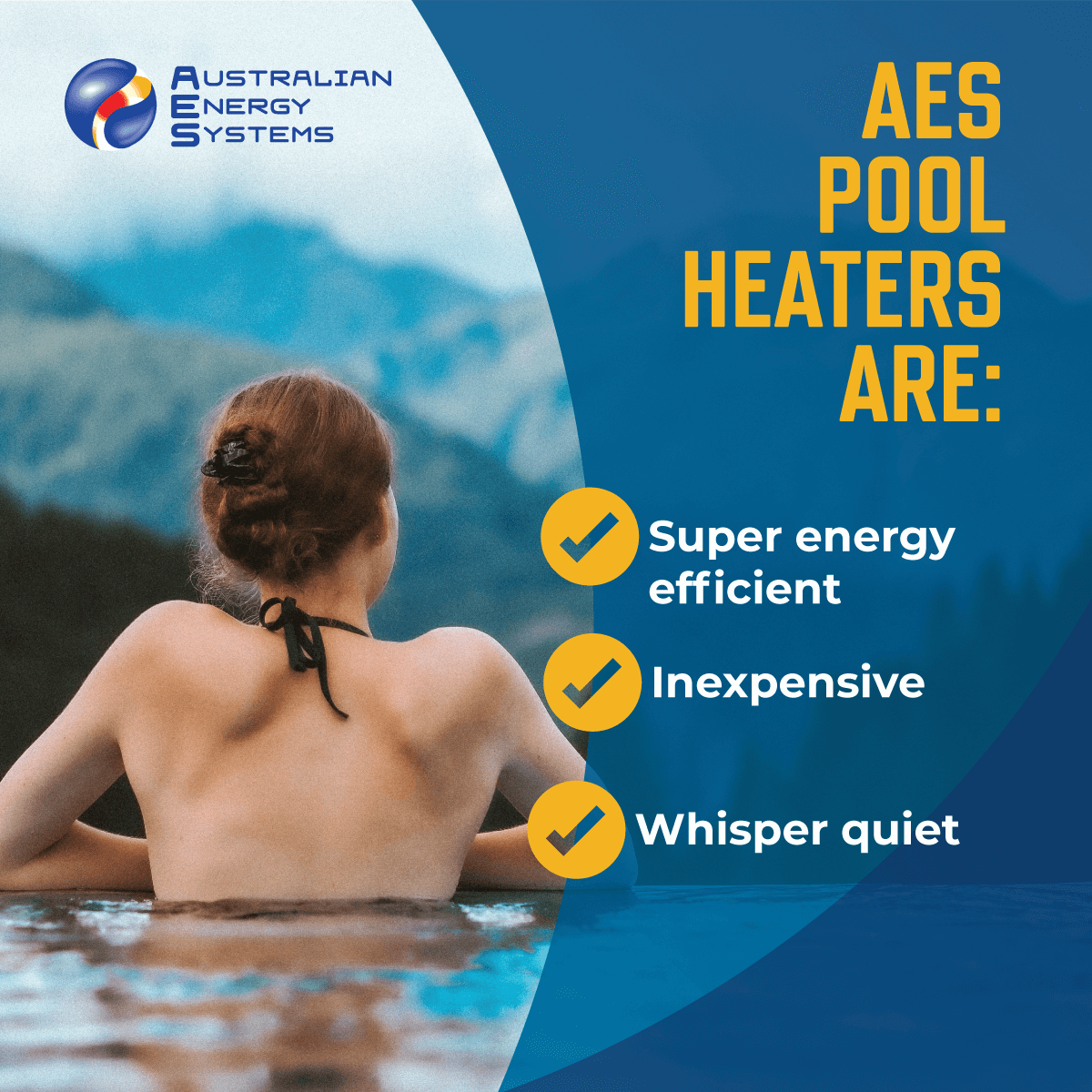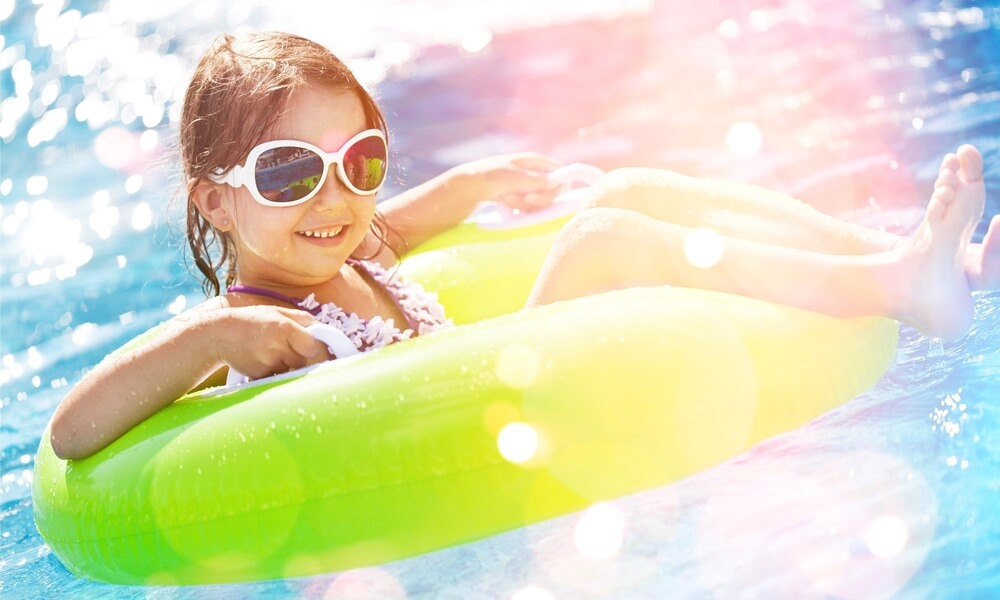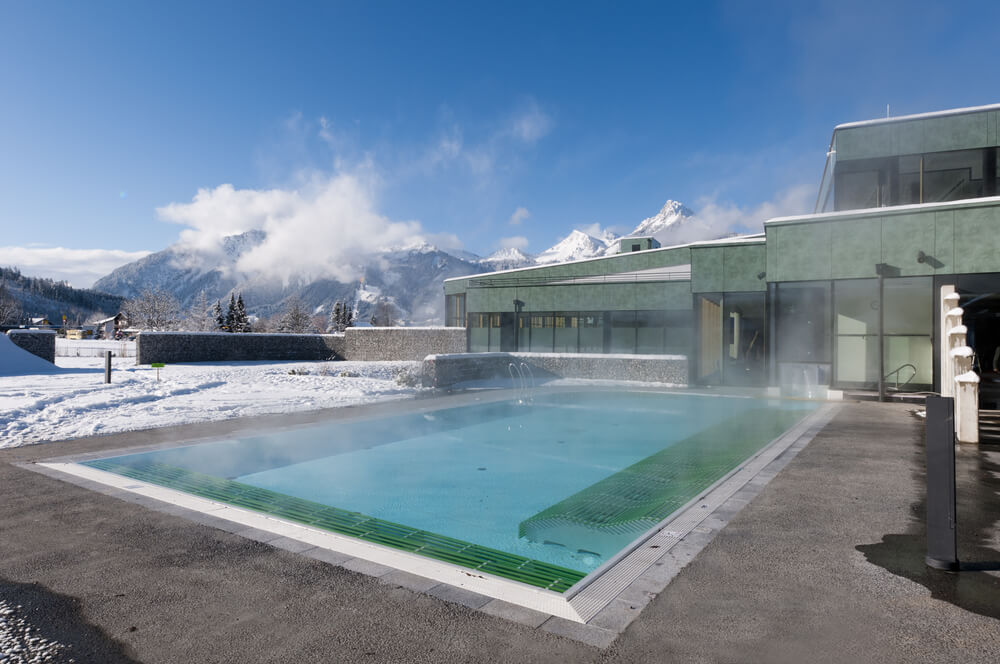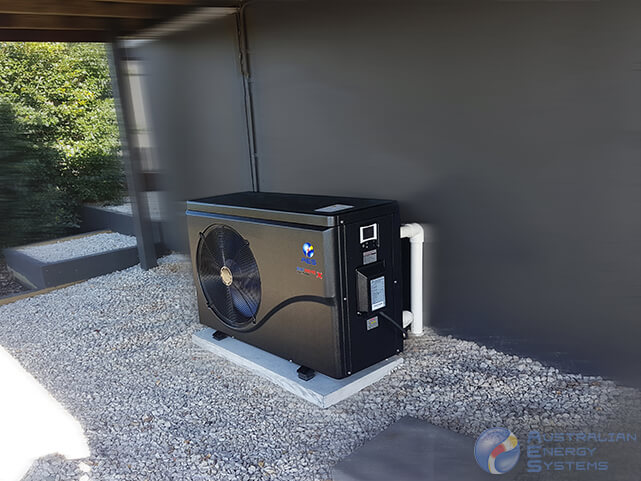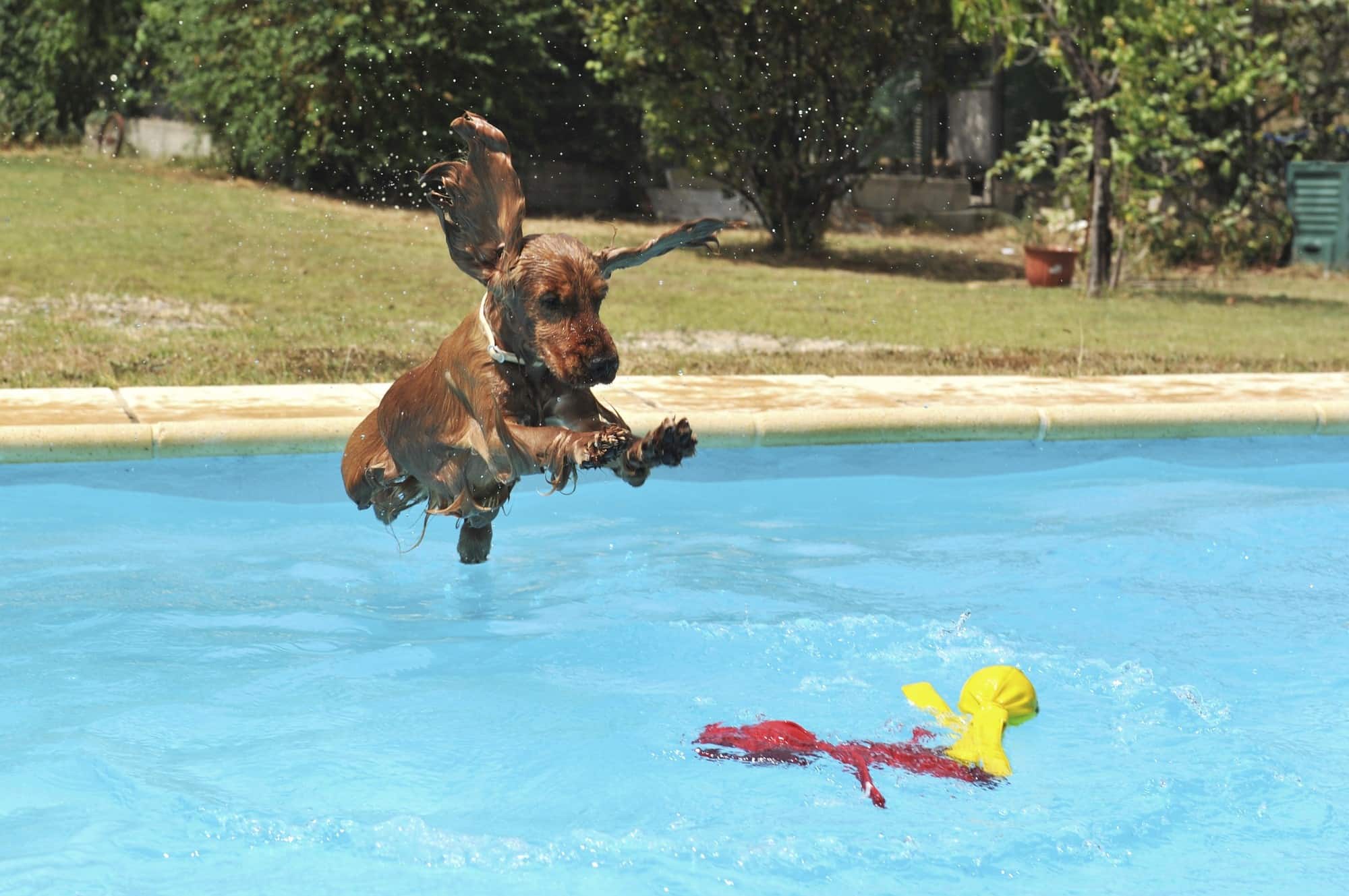Electric heat pumps are the most efficient way to heat your swimming pool, but only if you choose the right capacity.
However, choosing a correctly sized heat pump for your pool must be calculated very specifically. Heat pumps operate differently from gas pool heaters because they transfer the existing heat out of the air to warm your pool water. So, there are many variables to factor in, including: The general annual average temperature of your area; the size of your pool; How many months a year you plan to heat your pool?
Here’s how to properly calculate the right size so you save more (while swimming more!) in the long run.
Key Insights
- Choosing the right size heat pump for your pool is crucial to maintaining efficient and cost-effective heating. Pool heat pump sizing depends on several factors, including pool size, water volume, and local climate.
- Larger pools require larger heaters to maintain a comfortable temperature, while climate conditions can affect energy needs.
- Full inverter heat pumps, known for their superior efficiency, offer better energy savings compared to traditional on/off models.
- Accurately calculating your pool’s water volume is key to selecting the right pump, ensuring optimal heating performance and lower long-term costs.
Table of Contents
Understanding pool heat pump sizing basics
What is pool heat pump sizing?
Pool heat pump sizing refers to the process of determining the correct capacity needed to heat your pool efficiently. This involves understanding factors such as pool size, water volume, and environmental conditions. The larger your pool, the larger your heat pump will need to be to maintain a comfortable temperature. Proper sizing ensures that your heat pump doesn’t overwork, which helps save on energy costs while maintaining efficiency.
The difference in electric heat pumps
There are two types of electric heat pumps for pools. On/off heat pumps switch off when the temperature is reached, and switch back on when the water cools.
The second type is much more energy-efficient because it’s fitted with a smart inverter that slows down or speeds up to keep the pool at the set temperature. Full inverter heat pumps automatically self-regulate their speed, which uses less power than an on/off heat pump. Inverter pool heat pumps usually have a better Coefficient of Performance (COP) too.
Factors to consider when sizing a pool heat pump
Several important factors influence the proper sizing of a pool heat pump, likely: climate, type of pool, sizing, and water volume. Additionally, pool usage frequency, the presence of pool covers, insulation, and wind exposure can affect the heat pump’s performance and efficiency.
Pool usage frequency and its impact
How often you use your pool is another critical factor. Pools that are used frequently or year-round demand a larger heat pump to maintain a constant temperature. For occasional or seasonal use, a smaller heat pump may suffice, especially if paired with energy-saving practices like using a pool cover. Proper sizing ensures that your heat pump operates efficiently while minimising energy consumption and long-term costs.
Measuring COP and Kw
Coefficient of Performance (COP) refers to how much energy a heat pump can produce compared to how much it consumes. The higher the COP, the more powerfully it produces heat and the lower your power bill.
For instance, a pool heat pump with only an on/off function either runs at full capacity or not at all, much like doing 100km/h down the highway, screeching to a halt and then flooring the pedal again. These heat pumps typically have a COP of around 5, which means it generates 5kw of heat for every 1kw of energy used.
Electric heat pumps with full inverter technology are the most efficient, with many having a COP over 12. We recommend these types of electric heat pumps above all others because of their efficiency, lower environmental impact and extremely quiet function.
Pool size and water volume: Key factors
The size of your pool and water volume directly impact heat pump efficiency. The larger the pool, the more energy is required to heat it, which can affect how quickly and cost-effectively the pump operates.
Choosing a heat pump that aligns with your pool’s dimensions helps avoid under- or over-sizing, both of which can lead to higher energy consumption or inadequate heating performance.
Understanding your pool’s water volume is essential for determining the right heat pump size. Pool volume is typically measured in gallons or litres, depending on the shape and depth of the pool. For rectangular pools, multiply the length, width, and average depth, then convert to gallons or litres. Irregular-shaped pools, like circular or oval designs, may require more specific formulas or online calculators to get an accurate estimate. Knowing the exact volume ensures that your heat pump can adequately handle the heating load.
Properly sized heat pumps enhance energy efficiency and minimise operational costs.
Climate and environmental considerations
Climate plays a critical role in determining the size of your pool heat pump. Pools located in cooler or windier regions require larger heat pumps to compensate for greater heat loss. On the other hand, warmer climates allow for smaller heat pumps, as less energy is needed to maintain the desired temperature. Coastal areas, exposed to constant winds, may also require higher-capacity pumps to keep water consistently heated.
Other environmental factors
In addition to climate, other environmental factors like wind exposure, humidity, and shade affect heat pump performance. Pools that are exposed to direct sunlight will naturally retain heat better, reducing the workload of the pump. Similarly, pools shielded from wind or those using thermal pool covers will experience less heat loss, enabling smaller pumps to perform efficiently. Considering these factors helps ensure your heat pump is sized correctly for your pool’s environment, enhancing both performance and energy savings.
The science behind sizing a pool heat pump
At this point, it’s fair to say that it’s easier to have a professional size your heat pump for you because they know what they’re doing. The science behind heating your pool with the most efficiency can be daunting, and costly if you misjudge any elements.
Our team are always happy to help with heat pump sizing, and it’s something we do every single day. Just give us a call or contact us through our website and we’ll walk you through it.
Having said that, let’s look at how to size your heat pump according to your pool size.
Step 1. Calculate the size of your pool.
If you don’t already know your pool’s volume, you can work it out by measuring the length and width and multiplying it by the average depth (L x W x D). For example, a standard pool with a length of 7m and width of 3m, and an average depth of 1.3m will have a volume of 27.3 cubic metres, or 27,300 litres (7 x 3 x 1.3).
Step 2. Work out the kW required for your pool size
Once you know the capacity of your pool, you can size up a pool heat pump to suit.
Some people use a calculation of m3 ÷ 2500 to find the kW required from the heat pump, but that formula doesn’t take into account other factors and isn’t a reliable guide.
Instead, here is a very general guideline on pool capacity and heat pump sizes. Remember, pool heat pumps come in a variety of sizes and capacities depending on the brand, so these figures are to give you an idea, and are not hard-and-fast rules.
Pool Size | kW Required |
20m3 | Minimum 9kW |
40m3 | Minimum 12kW |
60m3 | Minimum 16kW |
80m3 | Minimum 16kW |
If you live in cooler parts of Australia, such as Victoria, South Australia, or Tasmania, you’ll likely need to choose the higher end of the kW capacity. You could consider going up to the next size so your heat pump is more efficient.
Step 3: Consider other factors
The general rule for pool heat pumps is: the smaller the pool, the smaller the heat pump. But, if in doubt, always go a size up rather than a size down. Even if the initial outlay is a tiny bit more costly, you’ll ultimately save a lot more on your power bill – and that’s what counts most.
Other factors can impact how efficient your pool heat pump will be, for instance:
- Each unit has a low and high COP depending on the ambient temperature and humidity, so its efficiency is determined by where you live. Colder climates may require a larger heat pump.
- If you don’t have a pool cover, your electric heat pump will need to work harder to keep your pool warm (which is why we say it’s essential to use a pool cover, which can reduce your heating costs by up to 80%!).
- If your pool is above ground or extremely large, keeping it at temperature will be more costly.
FAQs
1. Can pool heat pump sizing impact energy efficiency?
Yes, pool heat pump sizing is crucial for energy efficiency. If the heat pump is undersized, it will work harder and run longer to heat the pool, driving up energy bills. An oversized pump may short cycle, leading to inefficient operation and higher energy costs. By choosing the right size pump for your pool, you ensure that it operates within its optimal range, using less energy and reducing long-term operational expenses. Energy-efficient sizing also helps maintain consistent water temperatures without overtaxing the system.
2. How does pool water volume influence pool heat pump sizing?
The volume of your pool’s water is one of the primary factors in determining pool heat pump sizing. The larger the pool, the more water there is to heat, which requires a higher-capacity heat pump. For instance, over 37.000 litres (10,000-gallon) pools typically need a heat pump starting at a minimum of 12kW. Calculating your pool’s exact water volume helps ensure that your heat pump has enough power to heat the pool efficiently, maintaining a comfortable temperature without wasting energy or overburdening the system.
What you’ll need to know before calling for a quote
A pool heater expert will be able to give you the best advice to size your heat pump. They’ll factor in every element to make sure you get everything you want – pool heating for as many months of the year as you like, with the lowest operating costs possible.
So, before you call, have this information handy:
- The size of your pool (height, width and depth or the capacity in litres)
- The location of your pool filter pump in relation to the house
- If you have a pool cover (if not, we strongly suggest you do!)
- If the pool is above ground or in an extremely shady location
- How many months of the year you’d like to swim
Please feel welcome to call us anytime for a quote on the best kind of electric heat pump for your pool. We believe pools shouldn’t go to waste for half the year – heat it and love it year-round!

